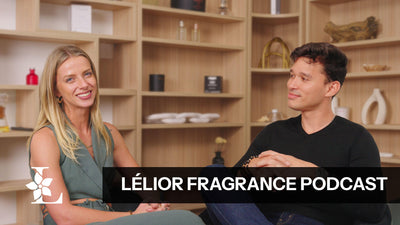Aromatherapy has gained tremendous popularity in recent years as people seek natural approaches to wellness. This ancient practice harnesses the power of essential oils extracted from plants to promote physical and emotional well-being. Whether you're struggling with stress, insomnia, or simply want to create a more pleasant environment, learning about essential oils can transform your daily routine.
Basics of Essential Oils: What You Need to Know
At their core, essential oils are concentrated plant extracts that capture the plant's scent. These powerful botanical compounds are obtained through careful distillation or cold pressing. The resulting products contain unique aromatic compounds that give each essential oil its characteristic fragrance and therapeutic properties.
The purpose of aromatherapy extends far beyond simply creating pleasant scents. When used properly, these potent plant extracts can:
- Reduce stress and anxiety
- Improve sleep quality
- Boost mood and energy levels
- Relieve certain types of pain
- Support respiratory health
- Enhance focus and mental clarity
Understanding the functions of essential oils begins with recognizing that these natural compounds interact with our bodies in multiple ways. When inhaled, the aromatic molecules travel through the olfactory system directly to the brain, particularly affecting the amygdala—the emotional center. This explains why certain scents can instantly trigger memories or emotional responses.
Scented essential oil products contain these powerful plant extracts in their pure form or blended with carrier oils for safe application. High-quality oils preserve the natural chemical profile of the plant source, ensuring maximum therapeutic benefit.
How to Use: Effective Ways to Experience Aromatherapy
There are numerous ways to use aromatherapy oils in your daily routine. The method you choose may depend on your specific goals, preferences, and the type of oil you're working with.
Inhalation Methods
- Diffusion: Perhaps the most popular method, electric diffusers disperse essential oil particles into the air. This allows for consistent aromatherapy benefits throughout a space.
- Steam Inhalation: Adding a few drops of essential oil to hot water and breathing in the steam provides immediate respiratory benefits.
- Direct Inhalation: Simply opening a bottle and taking a few deep breaths can provide quick relief in moments of stress or anxiety.
- Oil fragrance sticks: These absorb the essential oils and gradually release the scent into the air, providing a more subtle, continuous aromatherapy experience.
Topical Application
When diluted properly with carrier oils like jojoba, coconut, or almond oil, many essential oils can be applied directly to the skin. Common applications include:
- Massage: Essential oil blends can enhance the therapeutic benefits of massage.
- Compresses: Adding oils to hot or cold compresses can help with muscle aches or inflammation.
- Bath Products: A few drops in bath water or bath salts can create a luxurious, therapeutic bathing experience.
- Personal Care: Many people incorporate essential oils into homemade lotions, creams, and hair care products.
Home and Environment
- Cleaning Products: Many essential oils have natural antimicrobial properties, making them excellent additions to homemade cleaning solutions.
- Linen Sprays: Create a peaceful sleeping environment by lightly misting bedding with diluted lavender or chamomile oil.
- Sand candles: These decorative items can be infused with essential oils to create beautiful, fragrant home accents that release gentle scents when warmed.
Types of Essential Oils: Understanding the Variety
The world of aromatherapy includes hundreds of different type of essential oils, each with unique properties and benefits. Expanding your knowledge about these different oils can help you choose the right ones for your specific needs.
Common Essential Oils and Their Benefits
Here's a list of some common essential oils and their primary uses:
- Lavender: Perhaps the most versatile essential oil, lavender promotes relaxation, sleep, and can help alleviate anxiety. It also has skin-healing properties.
- Peppermint: Invigorating and cooling, peppermint oil can help with headaches, digestive issues, and mental fatigue.
- Tea Tree: With powerful antimicrobial properties, tea tree oil is excellent for skin conditions and household cleaning.
- Eucalyptus: This respiratory supporter helps clear congestion and supports immune function.
- Lemon: Uplifting and cleansing, lemon oil purifies the air and elevates mood.
- Rosemary: This stimulating oil enhances memory and concentration while supporting hair and scalp health.
- Chamomile: Gentle and calming, chamomile oil soothes irritated skin and promotes restful sleep.
- Frankincense: Often used in meditation, this grounding oil helps deepen breathing and calm the mind.
Categorizing Essential Oils
Understanding the different essential oils and uses becomes easier when you categorize them by their properties:
- Floral Oils: Lavender, jasmine, rose, ylang-ylang
- Citrus Oils: Lemon, orange, grapefruit, bergamot
- Herbal Oils: Rosemary, basil, thyme, oregano
- Woody Oils: Cedarwood, sandalwood, pine
- Spicy Oils: Cinnamon, clove, ginger
- Medicinal Oils: Eucalyptus, tea tree, peppermint
- Earthy Oils: Patchouli, vetiver, frankincense
The names of aromatherapy oils often reflect their plant sources, but some, like "Thieves" or "Peace & Calming," are proprietary blends combining multiple oils for specific effects.
How to Choose: Selecting Quality Essential Oils
Not all essential oils are created equal, so understanding what to look for in an essential oil is crucial for both effectiveness and safety.
Quality Indicators
- Purity: High-quality oils should be 100% pure with no additives or synthetic fragrances. Look for terms like "pure essential oil" or "100% pure."
- Botanical Name: Reputable brands list the Latin botanical name (e.g., Lavandula angustifolia for lavender) to specify exactly which plant species was used.
- Extraction Method: Look for oils extracted through steam distillation or cold pressing rather than those produced using chemicals.
- Country of Origin: The geographic location where plants are grown affects their chemical composition and therapeutic properties.
- Testing: Quality brands conduct rigorous testing like gas chromatography and mass spectrometry (GC/MS) to verify purity.
- Dark Glass Bottles: Essential oils should be stored in amber or cobalt blue glass bottles to protect them from light degradation.
Best Beginner Essential Oils
If you're just starting out, focus on versatile oils with broad applications. Some best beginner essential oils include:
- Lavender: An all-purpose oil for sleep, stress, and skin care
- Peppermint: For energy, focus, and minor pain relief
- Lemon: For cleaning, mood lifting, and air purification
- Tea Tree: For skin issues and natural cleaning
- Frankincense: For meditation, skin care, and emotional balance
Start with these versatile options before expanding to more specialized oils.
Examples of Aromatherapy: Real-Life Applications
Understanding the aromatherapy scent uses in daily life can help you implement this practice effectively.
For Emotional Well-being
- Stress Relief: Lavender, bergamot, ylang-ylang
- Energy Boosting: Peppermint, citrus oils, rosemary
- Mood Enhancement: Sweet orange, lemon, grapefruit
- Focus and Concentration: Rosemary, basil, peppermint
- Relaxation and Sleep: Lavender, chamomile, cedarwood
For Physical Support
- Headache Relief: Peppermint, lavender, eucalyptus
- Immune Support: Tea tree, eucalyptus, lemon
- Muscle Soreness: Marjoram, black pepper, ginger
- Respiratory Support: Eucalyptus, tea tree, pine
- Digestive Comfort: Peppermint, ginger, fennel
Seasonal Applications
- Spring Allergies: Eucalyptus, peppermint, lemon
- Summer Cooling: Peppermint, eucalyptus, spearmint
- Fall Immune Support: Cinnamon, clove, orange
- Winter Wellness: Eucalyptus, tea tree, thyme
Learning to use essential oils for aromatherapy effectively takes time and experimentation. Begin with simple applications and gradually expand your practice as you become more familiar with how different oils affect you.
Remember that everyone responds differently to essential oils, so what works wonderfully for one person may not have the same effect on another. The journey of discovering which oils resonate with your body and mind is part of the joy of aromatherapy practice.








